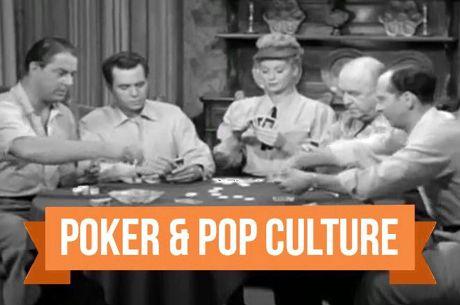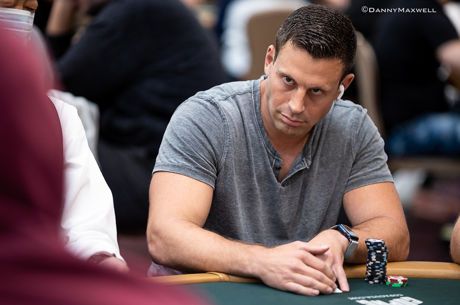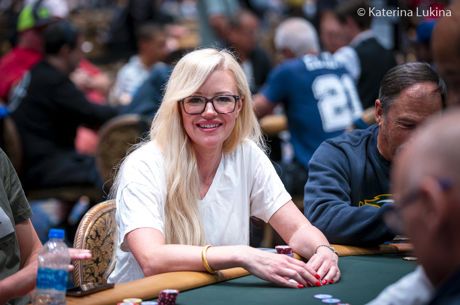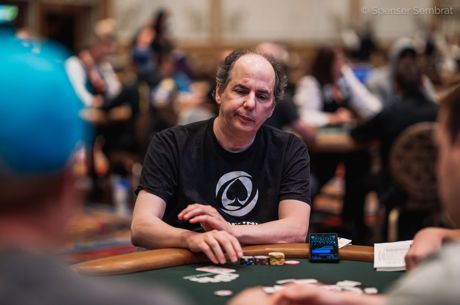That's What She Said: Doug Polk is Wrong. Here's Why.

It's been a few weeks since Doug Polk tweeted his thoughts on women in poker and why he doesn't think there should be a female poker player of the year award.
Anything that awards women for their success in areas they're not disadvantaged to men, hurts the cause of women be…
— Doug Polk (@DougPolkPoker)
His perspective has been on my mind since I first read those tweets and has dominated my thoughts for a while now. I actually sat down to write this article a few weeks ago but was struggling to put my thoughts on paper.
In discussing the whole idea of women and poker with my editors, my husband, and some other female poker players, I came to one conclusion and that is: there are a lot of differing opinions out there and they are all valid.
Let me begin by saying, I believe Polk's intentions are good, but frankly, he's wrong.
Let me begin by saying, I believe Polk's intentions are good, but frankly, he's wrong.
For many years, both men and women have been speculating why so few women are playing poker. In fact, I found a book from 2002, , that addressed this very conversation.
Did you know that last summer at the World Series of Poker, women accounted for only 5.4% of registrations? To put that in real numbers, . Let that sink in for a moment.
That number says to me that there is a big problem. To be honest, I think there are quite a few problems that are reflected in that number, but we have to start somewhere.
The biggest problem starts with a successful male player thinking he should speak out and say honoring women does women a disservice.
In the wake of the #metoo movement, one thing women don't need is men speaking up for them. The whole point is for women to start speaking up for themselves.
To be fair, I don't disagree with everything Polk said. I agree with two statements:
"I cannot stand when women are treated inferior to men." And, "As a business owner, you should hire, fire, and promote women as equals."
But here's where things get tricky.
The biggest problem starts with a successful male player thinking he should speak out and say honoring women does women a disservice.
"There should not be a poker award for the best female player because women are not intellectually disadvantaged to men."
For the record, I believe there should be a best female player award. I'll talk more about that later, but for now, you should know that it's true women are not intellectually disadvantaged to men.
The problem with that statement is that poker is not purely an intellectual game.
Poker is a game of decision-making. And while it's been proven that men and women are intellectually equal, it has also been proven that men and women make decisions differently. But our differences don't stop there. Our priorities are different, our goals are different, and how we play strategy games is different.
Not better or worse. But different.
In from The University of California, Irvine concluded that men tend to process, analyze and make quick decisions while women tend to seek out as much information as they can before they make a decision.
Both decision-making processes are equally valuable in a fast-paced game of incomplete information.
A few weeks ago, Maria Lampropulos, on her way to winning the PCA Main Event, was criticized for her consistent tanking. Guess where most of the criticism came from? Yep, men.
Calling the clock on a player is part of the game and it's every player's right. It's one thing to call the clock on a player, but an entirely different matter when you chastise a player for taking their time while making a decision.
Tanking is easy to understand when you know someone is out there trying to gather all the information they can. Which, by the way, is a good thing.
Let's take it a step further. Think about a specific and relatively new addition to the game — the action clock. It is entirely designed towards the decision-making strengths of men.
Do I think the action clock is bad for the game? No, of course not. But I do think it's worth noting that new aspects to a game can be introduced that favor men while having a negative impact on women.
Not Exactly
In his tweets, Polk also said, "The biggest problem in gender inequality is girls not being taught how important computers/technology are. As a parent, don't make that mistake."
That is just not true. There are more initiatives than ever before designed to encourage more girls to get involved in science and technology.
We have been conditioned that poker is a man's game and we just aren't as good as men at it.
And to be honest, the United States is failing at this — not the parents, but the country as a whole. And not on a gender level, but on an academic one. Our education system is not designed for the changing job market. But that's a discussion for another day.
The problem isn't that girls aren't taught how important computers and technology are, it's that we are conditioned to think we aren't good at computers and technology.
And guess what? We have been conditioned that poker is a man's game and we just aren't as good as men at it. Of course, this isn't true and I admit that the times are changing. But that's the impression for a lot of women I know that do not play poker. And that is the impression that is reflected in the statistic stated above.

A Little Background
I'm a math geek. Back in the day, my math teacher accused me of cheating on my math test because I answered the extra credit question correctly.
The question was, "Who won the Heisman trophy?" Mr. Kent automatically assumed I cheated on my test because "How could you, a girl, possibly know that?" I remember the question and answer like it was yesterday — it was Tony Dorsett by the way.
It just so happened I watched the awards show with my dad the night before. Thankfully, my dad stood up for me and had a nice "little chat" with Mr. Kent. But the feeling that I shouldn't know something because I was a girl has always stayed with me.
Another example is when my grandfather was teaching me how to play poker back in his shed when I was just eight years old. He never let me win because he wanted me to be able to "play with the boys."
Honestly, I'm grateful for both those experiences and I used them to motivate me. I wasn't going to let the fact that I wasn't a boy stop me. But it could have easily gone the other way. Hopefully, you can see now why a woman might begin to feel inferior.
I tell you these stories because these are the kinds of things women deal with every day — yes, even forty years later. They're subtle and they chip away at one's self-confidence.
And that's exactly what Polk did with his tweets.
The reality is we aren't playing on a level playing ground. Women are automatically at a disadvantage, not because men play better than women, but because men make the majority of decisions that affect the future of the game.
And, it is those decisions made with the assumption that men and women are playing on a level playing ground when they aren't, that is keeping more women from embracing the game.
The next poker boom happens when poker becomes a more attractive game to more women.
The next poker boom isn't coming because of a combined international player pool, or a new generation coming up in the ranks. The next poker boom happens when poker becomes a more attractive game to more women.
It's when the marketing of the game changes.
When women, and how they play the game, are considered as equally important as how men play the game.
When women feel comfortable sitting down at a table with men and not made to feel dumb for making a call — a call that might be congratulated if she were a man.
Everyone can agree that more recreational players in the game are a good thing. And more women in the game is also a good thing. Well, for the record, women are less likely to put up with being treated like they suck. So instead, they stay away.
And that is why female poker awards are a good thing. It is a marketing tactic — as all awards are. It showcases the successes of women in the game.
It provides a role model for other women. When only 5% of the field are women, it's hard to get enough women in the spotlight to make a meaningful impact. It's up to us to make that happen.
We were lucky that last month at the PCA, two women got significant press for their wins. But even those had an asterisk by them. One studied under a man, and the other tanked a lot. Yes, the wins were heralded, but the footnotes got equal attention.
There isn't a single person that I know of that doesn't want the game to grow. But if you look at all of the advances in the game and how the game is marketed, most efforts are targeting players that already play the game, and specifically targeting men.
Understanding how women make decisions can open the doors to a brand new demographic, one that is often an afterthought.
And if growing the game is the goal, that's a pretty good position to be in. And that's what she said.









